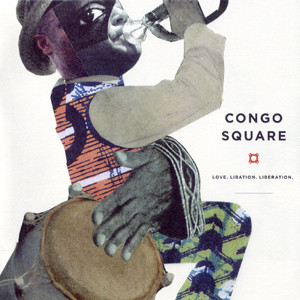Wynton Marsalis: a man, a plan and a horn
For a quarter of a century, the trumpeter, who had greatness thrust upon him at the age of 20, has been the go-to man when the media seeks a quotable take on one of America’s purest art forms.
“I love it,” says Marsalis, who brings his Jazz at Lincoln Center Orchestra to Colorado for three performances in the next week. “There are many opinions about things, and mine is one. People should think about what I put into it (music), but that’s what’s great about being in a democratic situation. You can choose to form your own opinion about things.
“I’ll speak as truthfully as I can.”
It wasn’t long after he began receiving rave notices with drummer Art Blakey’s Jazz Messengers in the early ’80s that the young man from New Orleans with virtuoso technique became a marketing phenomenon.
Jazz, according to many in the press, had been dormant, if not dead, for the better part of a decade, although it seems like it was really just being ignored. Marsalis represented a new generation of so-called “young lions” who were saviors of the popular straight-ahead approach before the difficult avant-garde shakeup of the ’60s and the rock-charged onslaught of fusion on the ’70s.
Marsalis was emblematic of a return to “traditional” values in jazz, and he was vocal in his definition of what he believed jazz was and was not.
His influence has been vast. Through a string of increasingly ambitious compositions and recordings, his leadership role in New York’s Jazz at Lincoln Center organization, and his guiding hand in the massive documentary, “Ken Burns Jazz” at the turn of the century, the Marsalis name has practically been interchangeable with the word “jazz” itself.
Marsalis is so powerful that he even received an invitation to appear on that pop-culture barometer “The Daily Show With Jon Stewart” to discuss jazz and promote his latest CD, “From the Plantation to the Penitentiary” (Blue Note). And “The Daily Show,” as well as the overwhelming majority of the mainstream television landscape, is hardly a place where jazz is often mentioned with more than a passing reference.
Tirelessly promoting jazz, his own in particular, he’s happy to talk about the newest work, “Congo Square,” an elaborate suite that combines the Jazz at Lincoln Center Orchestra with the polyrhythms of Ghana-born drummer Yacub Addy and his own 25-year old ensemble, Odadaa! “Congo Square” was composed to evoke the sounds of the New Orleans gathering place for slaves in the 18th and 19th centuries.
“There’s no way to know what it sounded like,” he says of the music heard in Congo Square. “It (the new work) deals with both African and American music. It’s like a festival in itself. It’s really dance music, with chants and New Orleans mythology. There’s a celebratory nature to it, and people have such a great time.”
“He has such a spiritual presence,” Marsalis says of Addy. “We’ve been talking about this (collaboration) for 15 years. It isn’t just a project, it’s a way of life.”
Marsalis also promises that a CD version of “Congo Square” will be available for purchase at the concerts, although the recording hasn’t been released to retail outlets yet.
“It’s our best sounding CD,” he says proudly. And that’s saying something, considering the multitude of releases that have come out under his leadership.
From the excerpts I’ve heard, “Congo Square” ranks among Marsalis’ most joyous music, particularly in the downright Ellingtonian big band exclamations he’s orchestrated. It would seem to be another testament to Marsalis the master craftsman. And Addy’s contributions are uplifting and appealing. The thousands of Coloradans who attend these scheduled performances will have the chance to experience a work that hasn’t yet been widely heard.
But that other recent Marsalis endeavor, “From the Plantation to the Penitentiary,” which serves as what boils down to his swinging critique of contemporary America, has been around long enough to make an impact. Journalistic evaluations of the disc have been slightly harsh in some cases, which is a rarity for Marsalis. If the criticism bothers him, he isn’t telling.
“There are so many varied reactions to everything that happens. There’s a mosaic of values over every issue,” he says.
The discs final track, “Where Y’all At?” features Marsalis delivering an indictment of a variety of societal ills in a style that could be described as hip-hop.
“It was just me talking over music, I was doing that in New Orleans years ago,” he says.
But Marsalis adds that he looks to himself as well when addressing what he sees as the problems in American culture.
“I always say (to the members of the orchestra), ‘If something is out of tune, check yourself first’.”
by Bret Saunders
Source: The Denver Post


